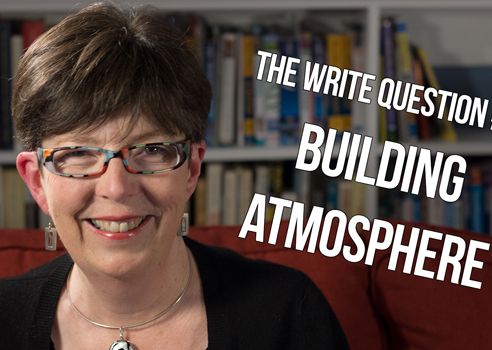Viewing time: 4 mins. 32 secs
The Write Question is a weekly video podcast about writing that I started in 2017 and that ran, more or less weekly, until April 2022. This is a republication of issue #34, describing how fiction writers can capture their characters’ travels. The post first ran on Oct. 20/17.
Transcript:
Welcome to The Write Question, I’m Daphne Gray-Grant. Today we’re talking about techniques for fiction writers.
Intro
Today I’m answering a question from Khaled Akli in Paris, France. Here’s what he asked me.
“I am after tips on how to document a character’s travel to a dangerous area (in my case visiting several terrorist-stricken countries in Sub-Saharan Africa). These travels, if successful, will be part of the character’s positive evolution. As I have never traveled to any of these countries myself, I don’t know how to write about the setting or the atmosphere… I am a little bit stuck. Do you have any tips?”
Thanks for the question, Khaled. As you may have heard, many writers often get the advice, “write what you know.” In fact, I frequently gave that advice myself. But I changed my mind a few years ago, after reading a thoughtful article in the Atlantic by writer and author Bret Anthony Johnston.
He offered the opposite. “Don’t write what you know.” Johnston’s article suggests that instead, writers should take more risks. He says the idea affected his own writing:
“I took small details from my life to evoke a place and the people who inhabit it, but those details served to illuminate my imagination. Before, I’d forced my fiction to conform to the contours of my life; now I sought out any and every point where a plot could be re-routed away from what I’d known. The shift was seismic. My confidence waned, but my curiosity sprawled.”
Johnston argues — and I agree — that writing only about what you know can be boring. I suggest you read his entire article, and there’s a link in the description.
Of course, if you’re setting your book in a different country, you’ll need to find out certain details so you can better express setting and atmosphere. Here are some concrete tips I can give you:
- Watch some movies: particularly documentaries. They should give you a good sense of setting and atmosphere in a city or region.
- Look online: The Internet is a trove of good information, and a quick google search will get you plenty of photos and descriptions that should be very helpful. I especially recommend Wikitravel.org as a great in-depth look of any given city or place.
- Go to the library: Travel books, in particular, should be able to give you a good sense of important buildings, weather, geography and local customs.
- Talk to real people: Interview someone who has actually lived in the place you want to write about. Nothing beats lived experience and this person should be able to fill in the holes that books or movies may have left. If you don’t know anyone personally, ask all of your friends and colleagues. Six degrees of separation means that you probably know someone, who knows someone, who lives where you want to write about.
Finding a local can also be very helpful once you’ve actually finished writing. Having someone review your manuscript to double check local knowledge is a good idea.
Building an atmospheric world allows readers to be transported into your writing. Your instinct to build an immersive world was correct. And aside from researching in the area where you want to write, I highly recommend looking at how others have tackled this challenge.
You might want to pay particular attention to SciFi and fantasy authors. These writers can’t travel to the world they want to represent, so they must use their imagination. Look at how they do it and you might get some ideas for yourself. I’m not a SciFi/fantasy reader, but others who highly recommend the works of Neil Gaiman, Corey Doctorow and Terry Pratchett. I’ve put some links below.
Finally, let me wrap up with a comment from novelist Ernest Hemingway. “From all things that you know and all those you cannot know, you make something through your invention that is not a representation but a whole new thing truer than anything true and alive.”
Thanks for your question, Khaled. With a combination of research and imagination, I hope you are able to capture the essence of the places in your novel.
Links:
Don’t Write What You Know (The Atlantic)


